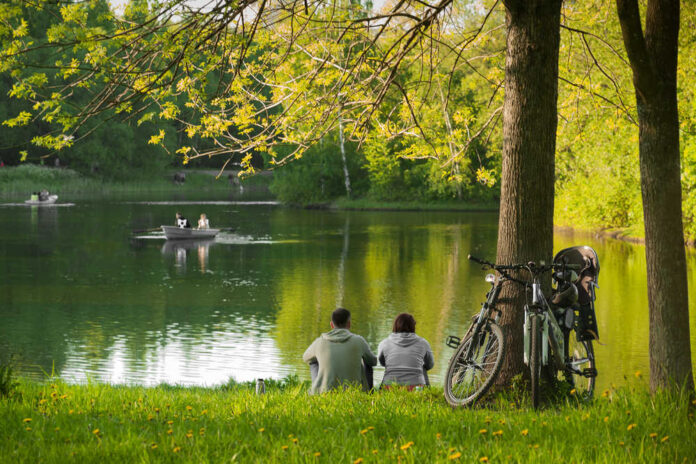
Neurodegenerative diseases, such as Alzheimer’s and Parkinson’s, are a growing concern among older adults. These conditions, which affect the brain and nervous system, can lead to cognitive decline and mobility issues, greatly impacting an individual’s quality of life.
While there is no known cure, researchers are constantly searching for modifiable risk factors and lifestyle choices that may help prevent or delay these diseases’ onset.
Living Near Parks and Rivers May Slow Disease Progression
In December 2022, a new study was published that examined data from over 61 million Medicare beneficiaries between the years 2000 and 2016. The researchers found that living in close proximity to natural environments such as parks and rivers may reduce the risk of hospitalization for Alzheimer’s and Parkinson’s disease among older adults.
This adds to the growing body of evidence suggesting that exposure to natural environments is great for your physical and mental health, including being protective of brain health.
The Link Between Natural Environments and Neurodegenerative Diseases
The exact mechanism by which living near natural environments may reduce the risk of neurodegenerative diseases is not entirely clear. However, there are several suspected reasons for this link.
● Reduced Stress: Natural environments have been shown to have a calming effect on the mind and body. The sights and sounds of nature can help to lower levels of the stress hormone cortisol, which has been linked to a number of negative health outcomes, including an increased risk of neurodegenerative diseases.
● Healthier Stimulation: Natural environments are full of interesting and diverse plants and animals, and there is always something new to see and discover. Unlike the constant barrage of stimuli found in urban environments, the stimulation provided by nature is typically more calming and relaxing.
● More Physical Activity: Natural environments often provide opportunities for physical activity such as walking, hiking, and cycling. Regular physical activity has been linked to a lower risk of developing neurodegenerative diseases.
● More Social Interactions: Parks and other natural areas can serve as social hubs where people of all ages come together to enjoy the outdoors. Social interactions and strong social connections have been linked to a lower risk of developing Alzheimer’s and Parkinson’s disease.
● Reduced Exposure to Pollution, Heat, and Noise: Natural environments tend to have lower levels of air pollution, extreme heat, and traffic noise compared to urban areas. All of these factors have been linked to an increased risk of developing neurodegenerative diseases.
Other Considerations
While living near natural environments may help to lower the risk of developing neurodegenerative diseases such as Alzheimer’s and Parkinson’s, it is important to remember that there are many other lifestyle factors that can also impact your risk.
A healthy diet, regular exercise, and engaging in mentally stimulating activities have all been linked to a lower risk of developing these conditions.
It is also important to be aware of any cognitive or neurological changes that you may be experiencing, as early diagnosis and treatment can help to slow the progression of these diseases.






















